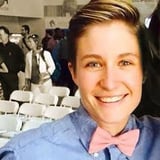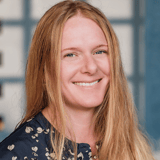Summary
The most successful UX researchers Mackenzie has had the gift of working with traverse some of the most non-linear, seemingly meandering career paths and life journeys imaginable. Yet job requirements and research career ladders, if they exist at all, seem to expect and even demand a linear trajectory, all too often focused on tenure as a main criteria for growth. This session will suggest new criteria for evaluating the maturity of one’s research practice as well as propose a focus on one’s researcher identity. Mackenzie wants to explore how we might better recognize transferable skills and capabilities and explore more inclusive frameworks that can house the wide variety of lived experiences that so clearly leads to success in the UX research space.
Key Insights
-
•
Many successful UX researchers have non-linear, ‘meandering’ career paths rather than the linear trajectories job descriptions demand.
-
•
Researchers often realize they have been doing UX research informally long before entering the field or receiving formal credentials.
-
•
Current hiring processes emphasize formal ‘stamps’ or credentials which often fail to capture transferable skills and true potential.
-
•
There is a disconnect between what gets recognized in hiring and promotions versus what actually drives success in UX research.
-
•
Defining individual and team research identities can help teams align on what success looks like and value diverse strengths.
-
•
Successful project models that reflect real experiences, including challenges, help create shared understanding and appreciation in teams.
-
•
Recruiting must extend beyond traditional channels and jargon to find talented researchers from diverse backgrounds and career paths.
-
•
Providing transparency and guidance in recruiting (e.g., translating transferable skills) helps candidates perform better and reduces bias.
-
•
Supporting researchers beyond entry-level roles is crucial to retaining talent, fostering mastery, and developing future leaders.
-
•
Treating the talent acquisition and retention challenges as a design problem encourages iterative, human-centered approaches to build a more inclusive discipline.
Notable Quotes
"The most successful researchers I’ve worked with have traversed the most non-linear and seemingly meandering career paths possible."
"I call this the moment of I’ve been doing this all along—people realize they were practicing research before they knew the name."
"You’re hired for the wrong reasons—those buzzwords and expensive stamps aren’t what really make you successful."
"The front door of our discipline is narrow, and while it serves a purpose, I don’t think it’s serving us well."
"Not everyone can become a great UX researcher, but a great UX researcher can come from anywhere."
"If we want to do the best work, we cannot keep looking in the same places and hope the right people will just show up."
"Tell people the ingredients and instructions—clarify what we’re looking for and support them to do their best."
"We must recognize multi-track career and multi-level skill sets, avoiding the single-track start-over model."
"This process does not end with getting someone in the door; how do we support and retain them to mastery and leadership?"
"Let’s blur the barrier between the outside and the inside, to stop missing out and strengthen the connections critical to what we do."
Or choose a question:
















More Videos
"We are like three legs of a chair: product, engineer, and UX all contribute to stability."
Product and Design at Bloomberg: A 15-year Evolution
December 6, 2022

"Guardrail metrics help catch unintended consequences like increased customer service calls despite higher conversions."
Erin WeigelUX Lessons from running more than 1,200 A/B Tests
July 10, 2024

"If you hear what I’m saying and you’re uncomfortable, and I say I’ll do it your way, now you’re connected and you’ll back me until you can’t anymore."
Jacqui Frey Dan WillisPanel Discussion: Integrating DesignOps
November 7, 2018

"Publishing a position paper at IBM takes months of review to align all stakeholders and avoid any suggestion of greenwashing."
Chris HammondEmbedding sustainability into enterprise design and development: A journey towards "sustainability consciousness"
April 2, 2025

"If we think disability as a mismatch between user and environment rather than a medical problem, it becomes easier to understand how accessibility benefits everyone."
Samuel ProulxFrom Standards to Innovation: Why Inclusive Design Wins
September 10, 2025

"We integrate Zoom with User Interviews to automatically create meeting links for every research session."
JP Allen Carrie Boyd Malcolm EvansNavigating the UX Tool Landscape
March 11, 2021

"Staff and principal designers need to balance zooming in on execution and zooming out to define strategic vision and minimize risk."
Catt Small Micah Bennett Brian Carr Jessica HarlleeWhat's Next for ICs: Exploring Staff and Principal Designer Roles
February 22, 2024

"Online, our bodies become transparent, reducing barriers and allowing for more intimate and open collaboration."
Surya VankaUnleashing Swarm Creativity to Solve Enterprise Challenges
June 10, 2021

"Self-identifying with a disability can humanize accessibility issues beyond checklists and code requirements."
Sam ProulxMobile Accessibility: Why Moving Accessibility Beyond the Desktop is Critical in a Mobile-first World
March 10, 2022
Latest Books All books
Dig deeper with the Rosenbot
How do competing AI agents within an enterprise environment require new design approaches for prioritization and control?
How do AI-powered experiences complicate predicting and optimizing customer behavior?
Who are the multiple user types involved in designing services for public sector innovation portfolios?
















